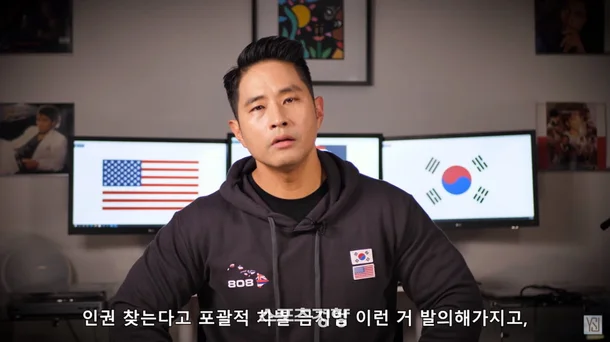Lee Ji-ho, the eldest son of Samsung Electronics Chairman Lee Jae-yong, will give up his U.S. citizenship and enlist as a naval officer. This has drawn comparisons to singer Yoo Seung-jun’s past case and is receiving praise.
According to Samsung Electronics on the 10th, Lee Ji-ho will enlist on the 15th as a candidate in the 139th class of the Naval Officer Candidate School. He gave up his U.S. citizenship to fulfill his national defense duty and plans to serve for 39 months (including training).

After completing 11 weeks of training, he is scheduled to be commissioned as a second lieutenant on December 1.
His assignment and unit will be determined at the time of commissioning, based on training performance and demand for each military specialty.
Born in the U.S. in 2000, Lee held dual citizenship in Korea and the U.S., but renounced his American citizenship to fulfill his military duty. For dual citizens to serve as officers rather than enlisted soldiers, they must renounce foreign citizenship.
This decision is being compared to Yoo Seung-jun, who had publicly declared his intention to serve but, in 2002, just before his enlistment, acquired U.S. citizenship and lost his Korean nationality, effectively evading service. As a result, he was banned from entering Korea and remains under heavy public criticism to this day.
At the time, at the request of the Military Manpower Administration, the Ministry of Justice banned his entry under Article 11 of the Immigration Control Act, citing “concerns that he may harm the interests and public safety of the Republic of Korea.” On February 2, 2002, Yoo Seung-jun was denied entry at Incheon Airport, effectively barring him from the country.
Over the years, Yoo Seung-jun has filed multiple lawsuits against the Korean Consulate in Los Angeles for refusing him an F-4 visa (for overseas Koreans). On August 28, the court ruled that the visa refusal was unlawful for violating the principles of proportionality and discretion, thus opening the way for his entry. However, the court made it clear that this did not mean his past actions were justified.
The public views Yoo Seung-jun’s actions as breaking a social promise and damaging trust, since he had said, “I will join the army,” but instead evaded service. To this day, many see it as an unresolved matter of moral responsibility.
In contrast, Lee Ji-ho’s decision to give up U.S. citizenship and serve 39 months, despite being born a dual citizen in the U.S., is seen as an example of noblesse oblige. This has sparked renewed praise for Lee and criticism of Yoo Seung-jun.
Meanwhile, Yoo Seung-jun said on his YouTube channel on August 31: “It wasn’t easy, but I’ve made it this far. Is there such a thing as an easy life in this world?” He added, “It’s heartbreaking that the media distorts facts and tarnishes sincerity.”
Korean Netizens React:
- “Steve Yoo’s biggest problem is that he thinks of himself as if he endured injustice. This is how someone who blatantly deceived the Military Manpower Administration thinks.”
- “I really liked him when he was Yoo Seung-jun, but after he became Steven Yoo, I can’t even stand to look at him.”
- “He and his father think completely differently. If you look back at those interviews at the time, it’s just ridiculous.”
- “What’s so unfair about your situation?”
- “I used to think he had a good impression, but now he just looks sly and mean.”
- “If he had just stayed quiet and pretended to be American, he could’ve been a legend. Why did he mess it all up by bragging about going to the army?”
- “Trump is selling green cards for 7.2 billion won, but this guy gave up U.S. citizenship worth way more than that… And even as an officer, he’ll serve at least two years. Meanwhile, women don’t serve at all. What a privilege, not doing one of the nation’s four main duties — military service.”







